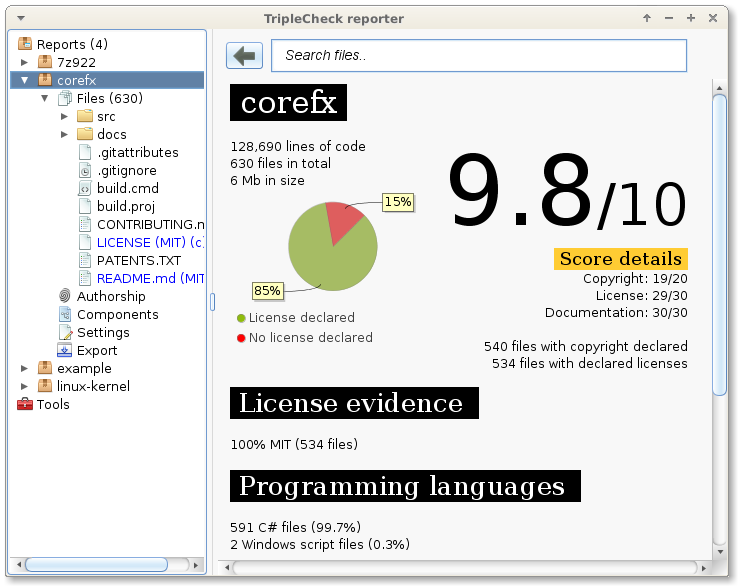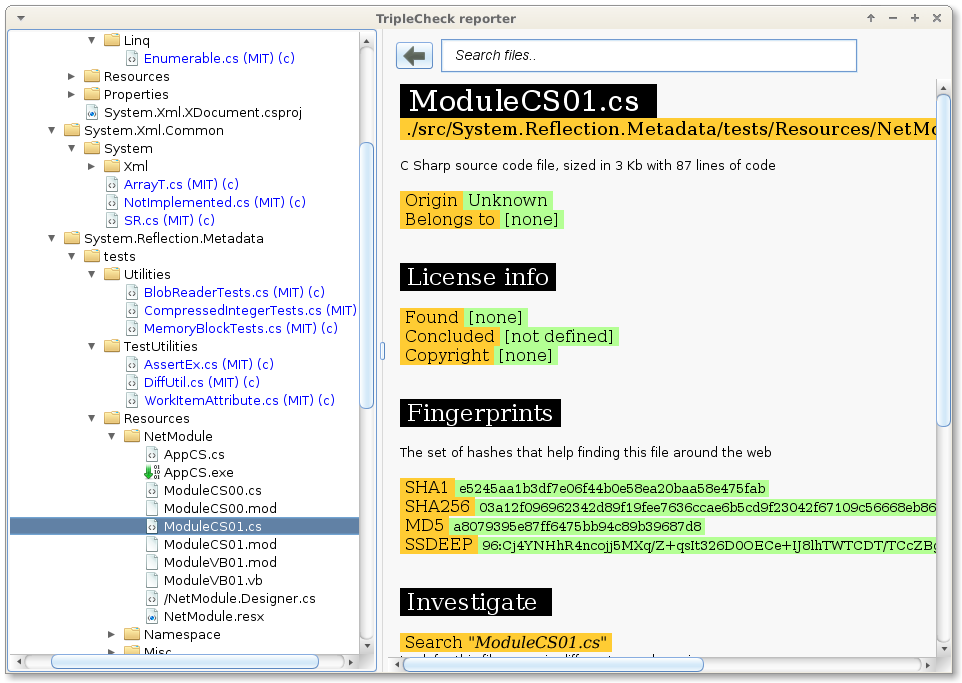Looking into the .NET license compliance practice
This week Microsoft released to public the source code for the .NET platform. The code is published to the public at GitHub and released under the MIT license terms.
This week Microsoft released to public the source code for the .NET platform. The code is published to the public at GitHub and released under the MIT license terms.
Better than just speaking about the advantages of open source, one should share their own code on the open sphere and this is when the licensing topic becomes a matter of scrutiny.
Now that this once proprietary code is now free and open to the public eye, I've took the liberty of looking inside the source to evaluate how well it would score in regards to licensing compliance.
To proceed with a licensing compliance check, I downloaded a copy of the source code and created a report using the triplecheck tool.
The result shows a project containing 630 files and 128 thousand lines of code. At the time of this evaluation, 534 files were identified with an MIT license reference, 540 files had reference to Microsoft as copyright holder. No other licenses were present.
The result is in the screenshot below.

I was happy to see how the current code base was almost reaching a 10/10 score. It was due to a few source code files that needed reference to author and applicable license that kept the 10 from reach.
Being hosted on GitHub means that it was straightforward to submit a bug report and the issue was picked up a few hours later by a developer.
On the second screenshot you see an overview of the code structure and what can be expected in regards to licensing.
The example highlights one of the files missing to correct.

This is a surface analysis, a deep analysis involves evaluating the code originality and the third-party dependencies. Please write a comment if you find a deeper analysis to be of interest and I'll proceed.
In conclusion, from a first week of releases to public it is clear that this code base demonstrates quality from a licensing perspective. Furthermore, the developer team is participative and transmits a notion of a serious commitment, which is much needed if the intention is to bridge the .NET platform with a healthy community spirit.
This is a sign of how the times are changing. And developing code open to public is certainly a good way to make these changes happen.
